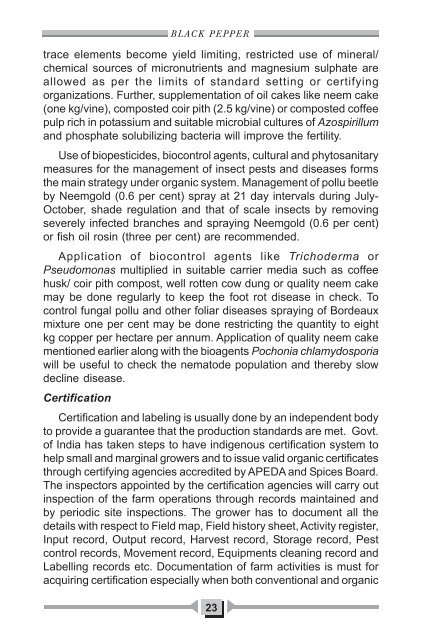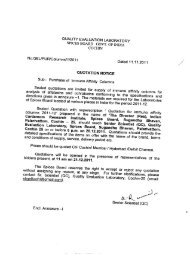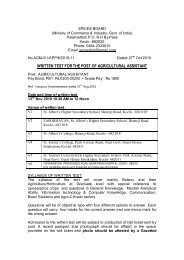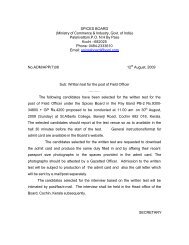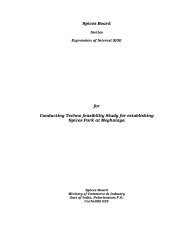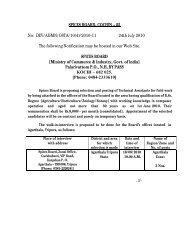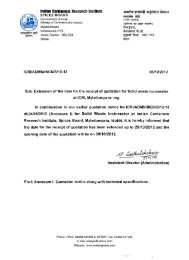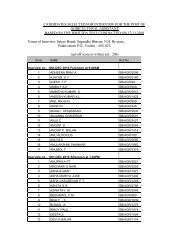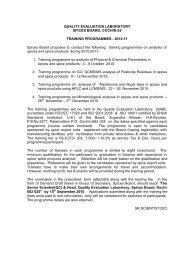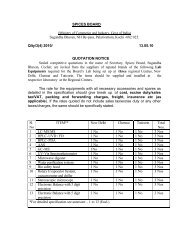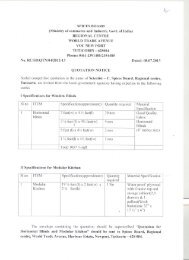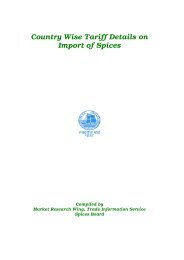Book-Black Pepper POP.pmd - Spices Board India
Book-Black Pepper POP.pmd - Spices Board India
Book-Black Pepper POP.pmd - Spices Board India
You also want an ePaper? Increase the reach of your titles
YUMPU automatically turns print PDFs into web optimized ePapers that Google loves.
BLACK PEPPER<br />
trace elements become yield limiting, restricted use of mineral/<br />
chemical sources of micronutrients and magnesium sulphate are<br />
allowed as per the limits of standard setting or certifying<br />
organizations. Further, supplementation of oil cakes like neem cake<br />
(one kg/vine), composted coir pith (2.5 kg/vine) or composted coffee<br />
pulp rich in potassium and suitable microbial cultures of Azospirillum<br />
and phosphate solubilizing bacteria will improve the fertility.<br />
Use of biopesticides, biocontrol agents, cultural and phytosanitary<br />
measures for the management of insect pests and diseases forms<br />
the main strategy under organic system. Management of pollu beetle<br />
by Neemgold (0.6 per cent) spray at 21 day intervals during July-<br />
October, shade regulation and that of scale insects by removing<br />
severely infected branches and spraying Neemgold (0.6 per cent)<br />
or fish oil rosin (three per cent) are recommended.<br />
Application of biocontrol agents like Trichoderma or<br />
Pseudomonas multiplied in suitable carrier media such as coffee<br />
husk/ coir pith compost, well rotten cow dung or quality neem cake<br />
may be done regularly to keep the foot rot disease in check. To<br />
control fungal pollu and other foliar diseases spraying of Bordeaux<br />
mixture one per cent may be done restricting the quantity to eight<br />
kg copper per hectare per annum. Application of quality neem cake<br />
mentioned earlier along with the bioagents Pochonia chlamydosporia<br />
will be useful to check the nematode population and thereby slow<br />
decline disease.<br />
Certification<br />
Certification and labeling is usually done by an independent body<br />
to provide a guarantee that the production standards are met. Govt.<br />
of <strong>India</strong> has taken steps to have indigenous certification system to<br />
help small and marginal growers and to issue valid organic certificates<br />
through certifying agencies accredited by APEDA and <strong>Spices</strong> <strong>Board</strong>.<br />
The inspectors appointed by the certification agencies will carry out<br />
inspection of the farm operations through records maintained and<br />
by periodic site inspections. The grower has to document all the<br />
details with respect to Field map, Field history sheet, Activity register,<br />
Input record, Output record, Harvest record, Storage record, Pest<br />
control records, Movement record, Equipments cleaning record and<br />
Labelling records etc. Documentation of farm activities is must for<br />
acquiring certification especially when both conventional and organic<br />
23


